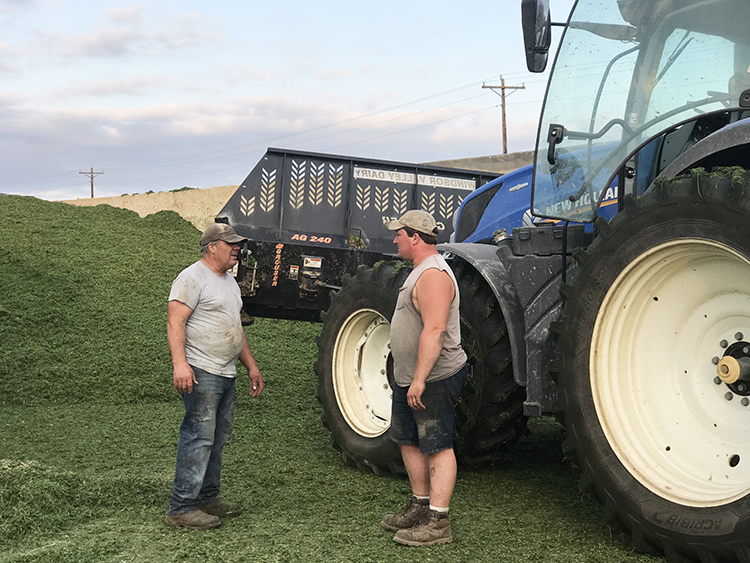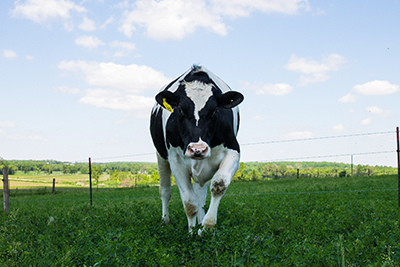
I was at a small, local event the other day where the audience was overwhelmingly comprised of dairy farmers. To no one’s surprise, everyone chit-chatted before taking off for afternoon chores and evening milking. Can you guess what we all talked about? Our cows, crops, and the weather, of course. We all discussed upcoming dairy events, new improvements on each other’s farms, certain cows we’re working with, our progress with field work, and more.
Talking with other farmers is so easy and natural. It’s like any other exchange — speaking with people who have similar backgrounds and levels of understanding is a breeze. It’s not always so seamless and smooth, though, to talk with people who have differing opinions or backgrounds.
This is something I like to experiment with in my conversations. A couple times a month, I interview other farmers throughout the country for some writing freelance work I do. I usually tell the farmers early in our conversations that I dairy farm full time and just do some writing jobs as a side gig and to flex my creative muscles. You wouldn’t believe the switch that gets flipped when the farmers I talk to realize I’m a fellow farmer and actually know a little something about what they’re sharing with me. On occasion, I’ve tested this theory by holding off sharing my background until later in our conversation.
It never fails. The second farmers I’m interviewing discover my background, it seems like our conversations reboot into a new, more enthusiastic, story-filled, and warmer toned discussion. This is when I get my best stories and quotes to write down and share with my audience, which is usually consumers who have little to no tie to agriculture.
After every conversation I have like that, I find myself wondering what information I would have gotten (or more so, missed out on) if the person on the other end of the phone didn’t find out I’m a farmer or at least grew up on a farm. In most cases, I would’ve missed some amazing cow stories, key information about the history of their farm, cool anecdotes and admirations for their employees, comical tales of their children and grandchildren growing up the farm, and the list goes on.

With June Dairy Month coming to a close, I think it’s a good time to remind ourselves that we have several audiences to reach. Sharing our triumphs and missteps with fellow farmers is a great way to learn new things, share helpful strategies, and network. It’s also valuable to take the same descriptive, enthusiastic, and positive tone with our consumer audience. They are the ones who can really benefit and gain understanding from hearing those authentic stories about your cows, how you’re raising your kids in this lifestyle, or new practices you’re implementing to be more efficient or sustainable.
While it’s also enjoyable to converse with people who have differing experiences and stories to share, those conversations can take a bit more work. Those involved in the discussion usually have to give more background information, pay attention to terminology that may not be common knowledge (farmers seem to run into this a lot), slow down or stop mid-story to answer clarifying questions, and so forth The reality is that talking with people outside our farming bubble can take more time, be trickier to navigate, and can sometimes be frustrating to find the right words to get your point across.
I encourage you to try treating all conversations similarly to your chats with fellow farmers. You might have to answer extra questions along the way or explain some terms you use, but I bet the person you’re talking with will appreciate the candid stories, in-depth information, and, in the end, better understand the passion you have for your work.

The author dairy farms with her parents and brother near Hawkeye, Iowa. The family milks approximately 300 head of grade Holstein cows at Windsor Valley Dairy LLC — split half and half between a double-eight parallel milking parlor and four robotic milking units. In the spring of 2020, Molly decided to take a leap and fully embrace her love for the industry by returning full time to her family’s dairy.






